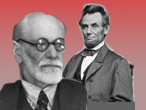Most of us believe judges are comfortable making decisions.
That’s their job, right? While the answer is Yes, it ain’t
necessarily so.
Judge Reggie Walton is a case in point. He is the judge in the
Roger Clemens case. As reported in The Washington Post
(http://www.washingtonpost.com/sports/judge-orders-clemens-
retrial/2011/09/02/gIQANZjcxJ_story.html ), Walton first
apologizes for making a decision. He had no choice, says he.
Next, he reveals his decision without revealing it. That’s what I
mean by reading the judge’s mind.
Here’s what he did. He castigated the prosecution–then decided
for them.
This is not at all unusual. Judge’s don’t want to anger anyone.
They either praise the eventual loser, or they criticize the
eventual winner. They make the loser feel better. They cannot
stand to make anyone feel bad.
This is an example of guilty anxiety. The judge experienced
discomfort, anxiety, knowing he’ll anger or disappoint the loser–hurt his feelings. He’ll make the loser feel bad, which makes him feel bad. So, he
throws the loser something to make him feel good.
This happens over and over in situations where people must hurt
someone. It is human, though we expect our judges to be extra
human. They, like our leaders, are seen unconsciously as we saw
our parents when we were two or three years old, all powerful,
right, comfortable with what they do. It is more realistic to see
them as fallible humans, just trying to cope. After all, that’s
what they are, underneath their robes.
So, if you want to know the winner and loser in a case moments
before the judge’s announcement, read his or her mind. If one
party was criticized, bet on that party as the winner. On the
other hand, if one party is praised, but on that party to be the
loser.

 Can you immagine how the political ideas and aspirations envisioned by Abraham Lincoln and the exploration of the psychological mind explored by Sigmund Freud can be seen as one entity?
Can you immagine how the political ideas and aspirations envisioned by Abraham Lincoln and the exploration of the psychological mind explored by Sigmund Freud can be seen as one entity?